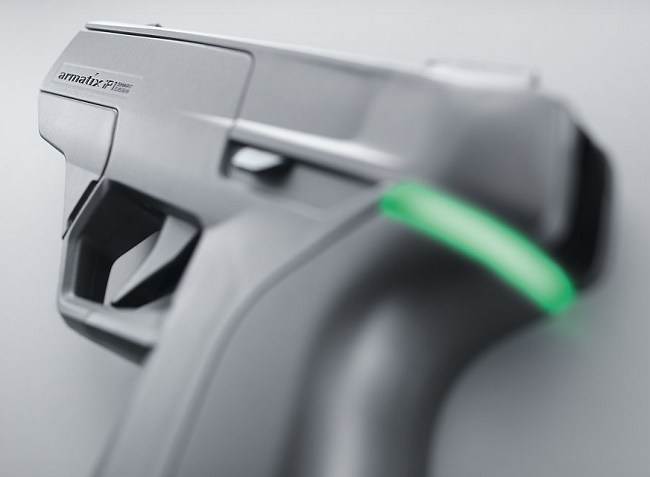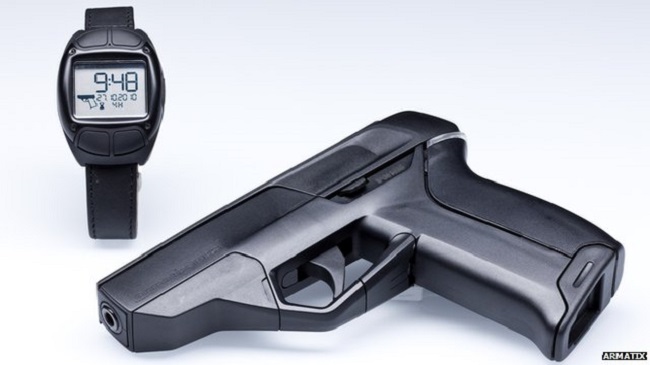
As smart technology permeates watches, televisions, vehicles, and electric grids, it seems inevitable that it will creep into firearms as well. So-called smart guns implement a variety of sensor technologies such as radio-frequency identification, biometrics, microchips, proximity sensors, and even magnets in an effort to improve gun safety. However, the idea of a smart-gun is proving to be controversial at best, with two sides of the spectrum in hot debate.
Innovation is being pushed by gun-safety activists who rally around the notion the technology will prevent children from shooting themselves, will undermine the black market for hands guns, and will possibly protect law enforcement agents from having their own guns used against them. On the opposite side of spectrum sit the pro-gun activists who see the inclusion of smart tech as restrictive, untested, and potentially unreliable.
The first smart-gun technology
Smart-guns are not conceptually new inventions; the earliest example dates back to the 1970s with the introduction of the Magna-Trigger, a rudimentary system of access-locking dependent on magnetic attraction. The system consisted of a magnet placed within the handgrip of a revolver that locks the trigger unless the owner wears a ring made of an opposing magnet.
Contemporary technology
The central principle behind modern smart-gun applications remains largely the same, but the technology has replaced analog-locking mechanisms with advanced digital ones. For example, the Armatix iP1 compact, .22 caliber, 10-round handgun can only be fired if its within 10 inches of a its companion iW1 watch, thanks to an embedded RFID tag. The firearm can also be disabled with a PIN code or timer, further preventing the nonowner from using it. 
Armatix iP1 handgun
A different sort of safety system, developed by a company called Biomac, measures a user’s biometric data with optical sensors to determine if the individual holding the pistol is its exclusive owner. Biomac states that the system can be configured to recognize multiple users or even be retrofitted onto older weapons, but if the data isn’t recognized, it will not fire.
Can it be hacked?
The biggest argument put forth by pro-gun activists is a very valid concern: Can smart-guns be hacked? It’s largely unknown how this would apply to firearm safety systems, as few people have had access to these weapons, but if the previous exploits of RFID tags and biometrics were any indicator, than hacking is a very real threat. After all, it was demonstrated in 2008 that an RFID tag can be breached with as little as $8 worth of equipment. And more recently, hackers managed to bypass the Samsung Galaxy 5’s finger print scanner with a homemade fingerprint mold.
The NRA argues that there’s no proof that the additional technology even results in better safety, given the lack of testing “opposed to government mandates that require the use of expensive, unreliable features, such as grips that would read your fingerprints before the gun will fire.”
New Jersey’s 2002 exclusive smart-gun law was almost triggered in 2014
As of yet, smart guns are unavailable in gun shops. The iP1 almost went on sale in New Jersey on May 1 of this year at what would’ve been the first shop in the U.S. to carry a smart gun. Selling the firearm would’ve retroactively triggered a New Jersey law set in 2002, mandating that all gun dealers in the state begin exclusively selling smart guns within three years of the first of such firearms going on sale. I say “almost went on sale,” because New Jersey gun-shop owner Andy Raymond retracted his statements within 24 hours of announcing his intentions after receiving death threats from pro-gun activists who feared the proliferation of similar laws on a nationwide basis.
The effectiveness of smart-gun technology curbing crime is largely unknown, and more likely to be unrelated, as the vast number of gun-related crimes are committed with guns sold on the black market.
Via BBC, Verge
Advertisement





